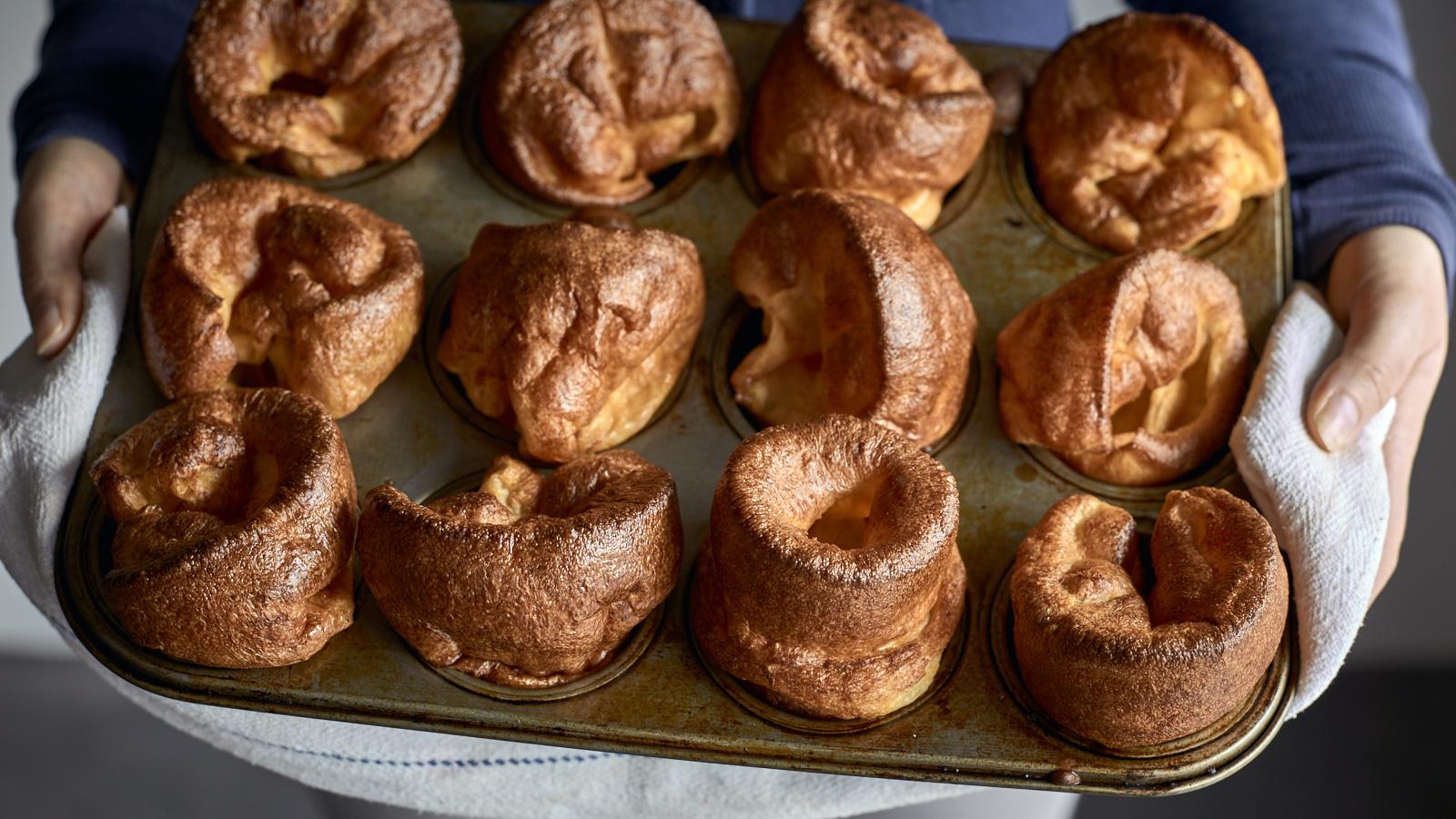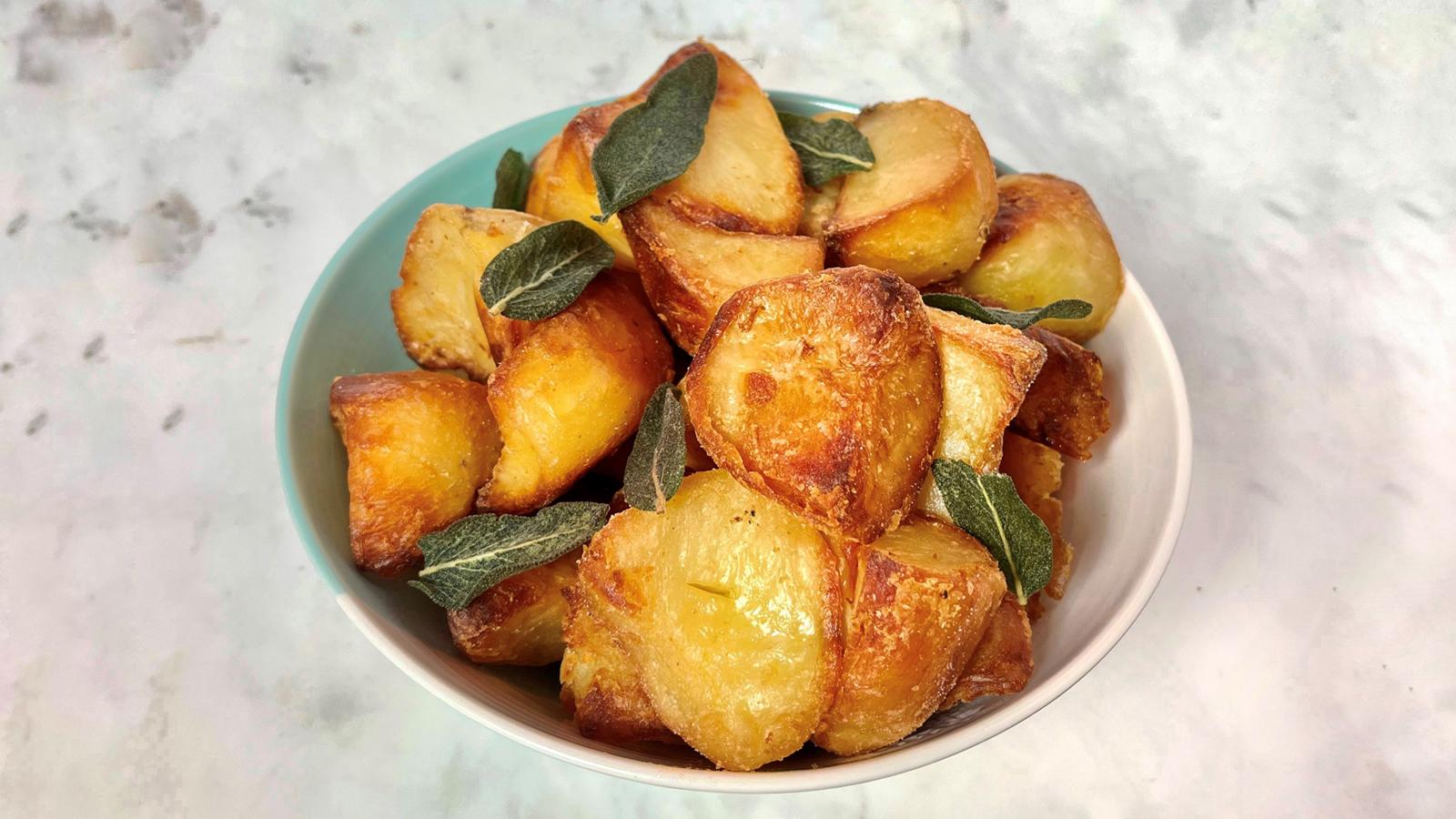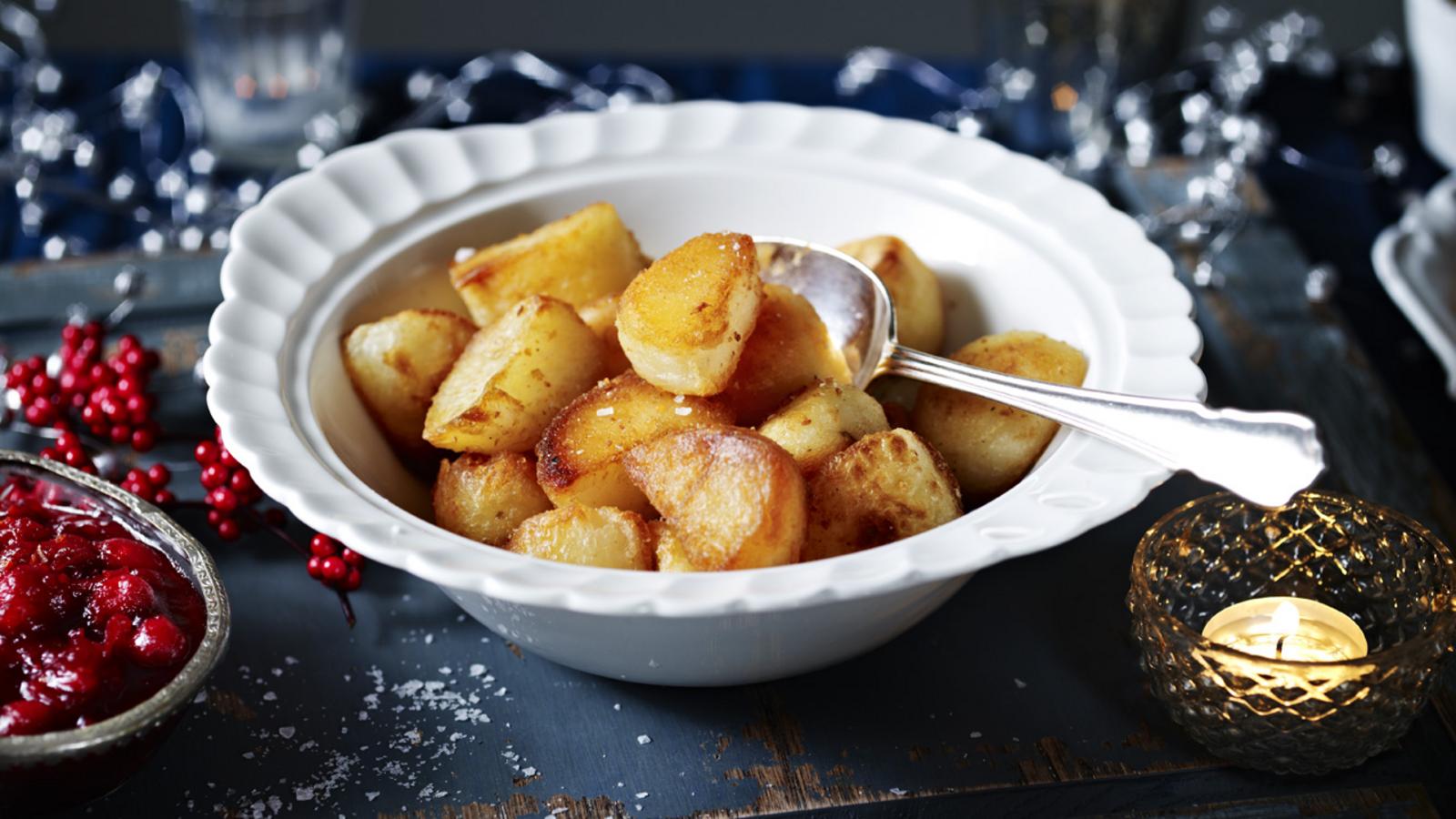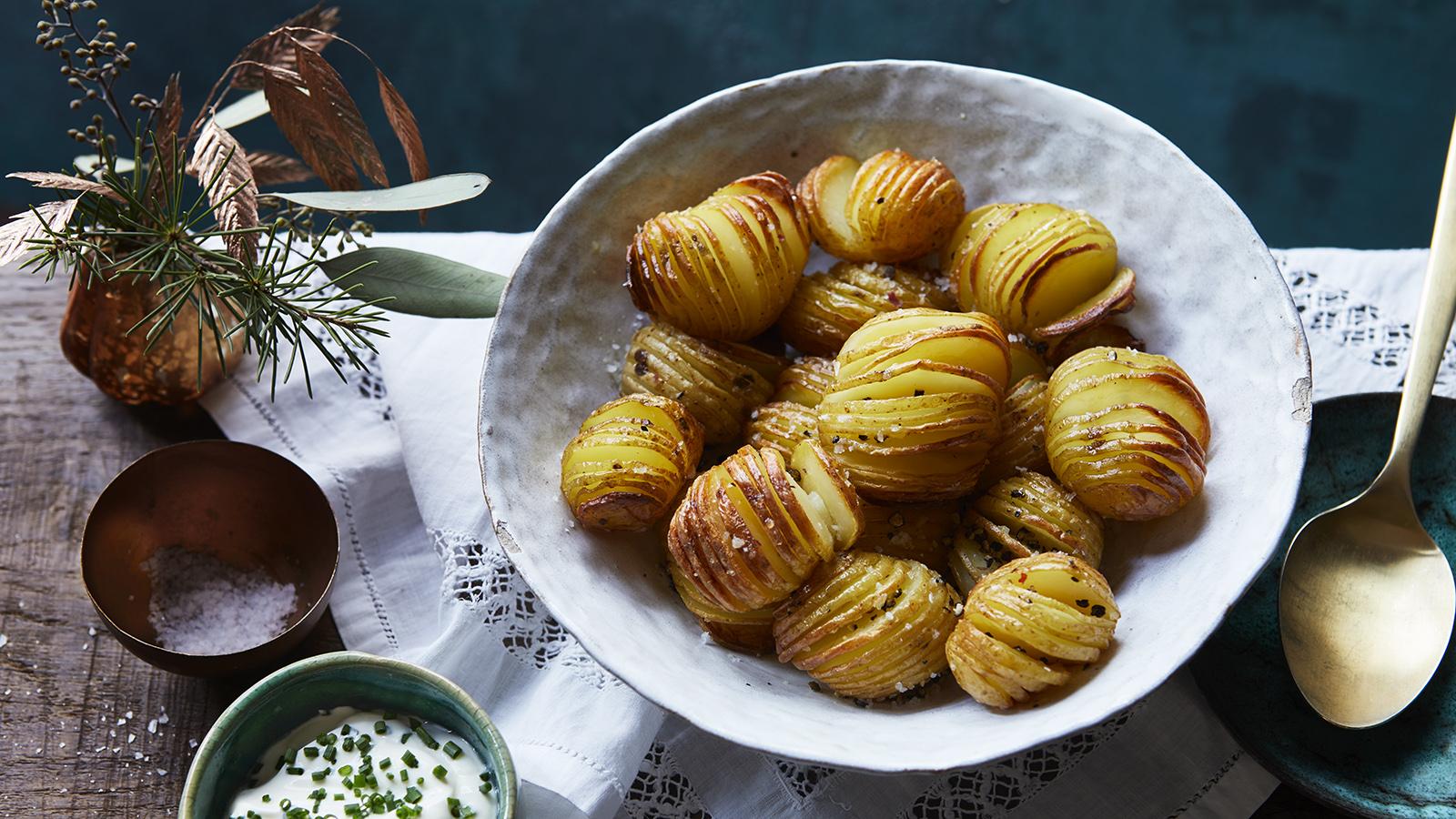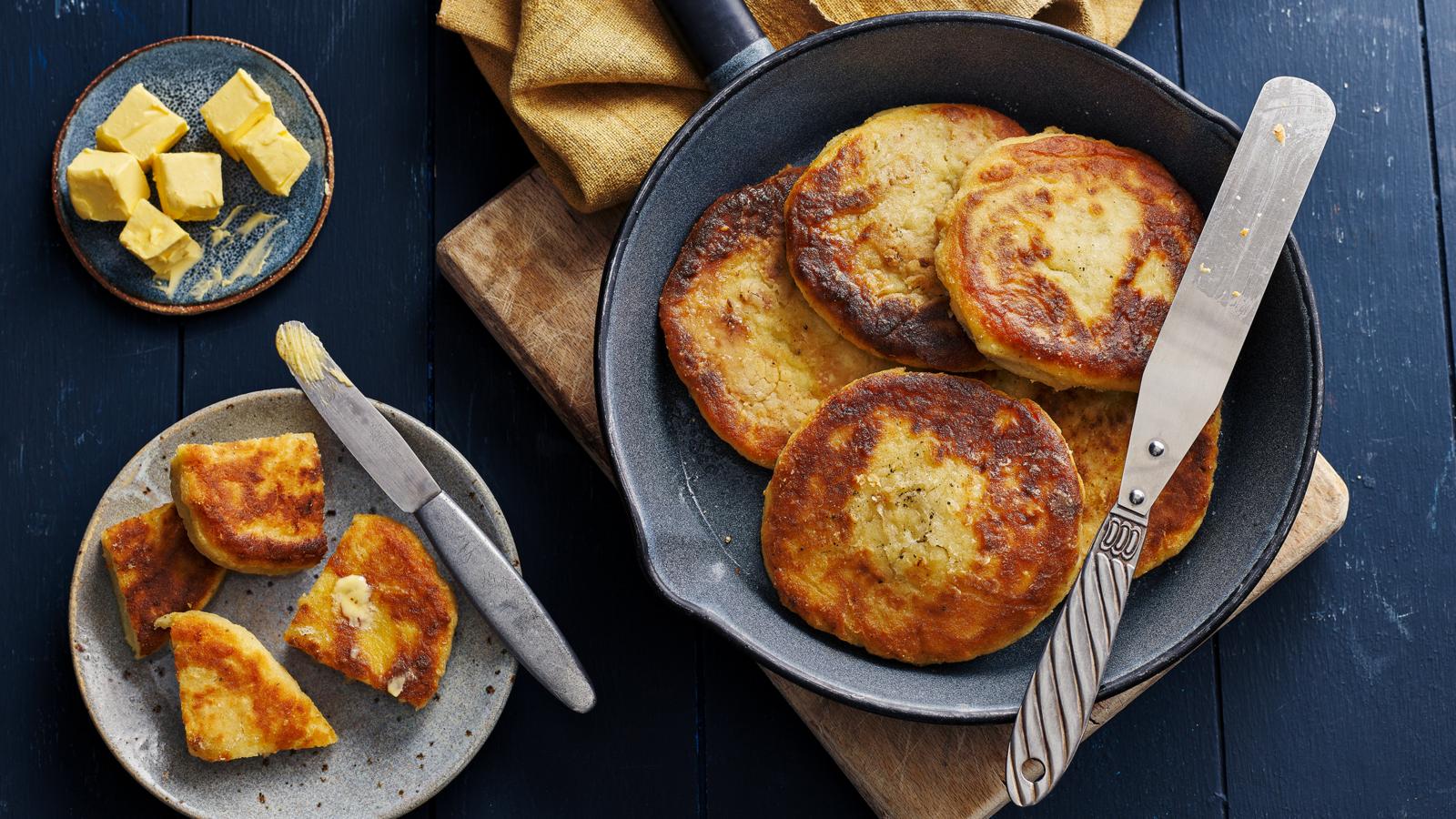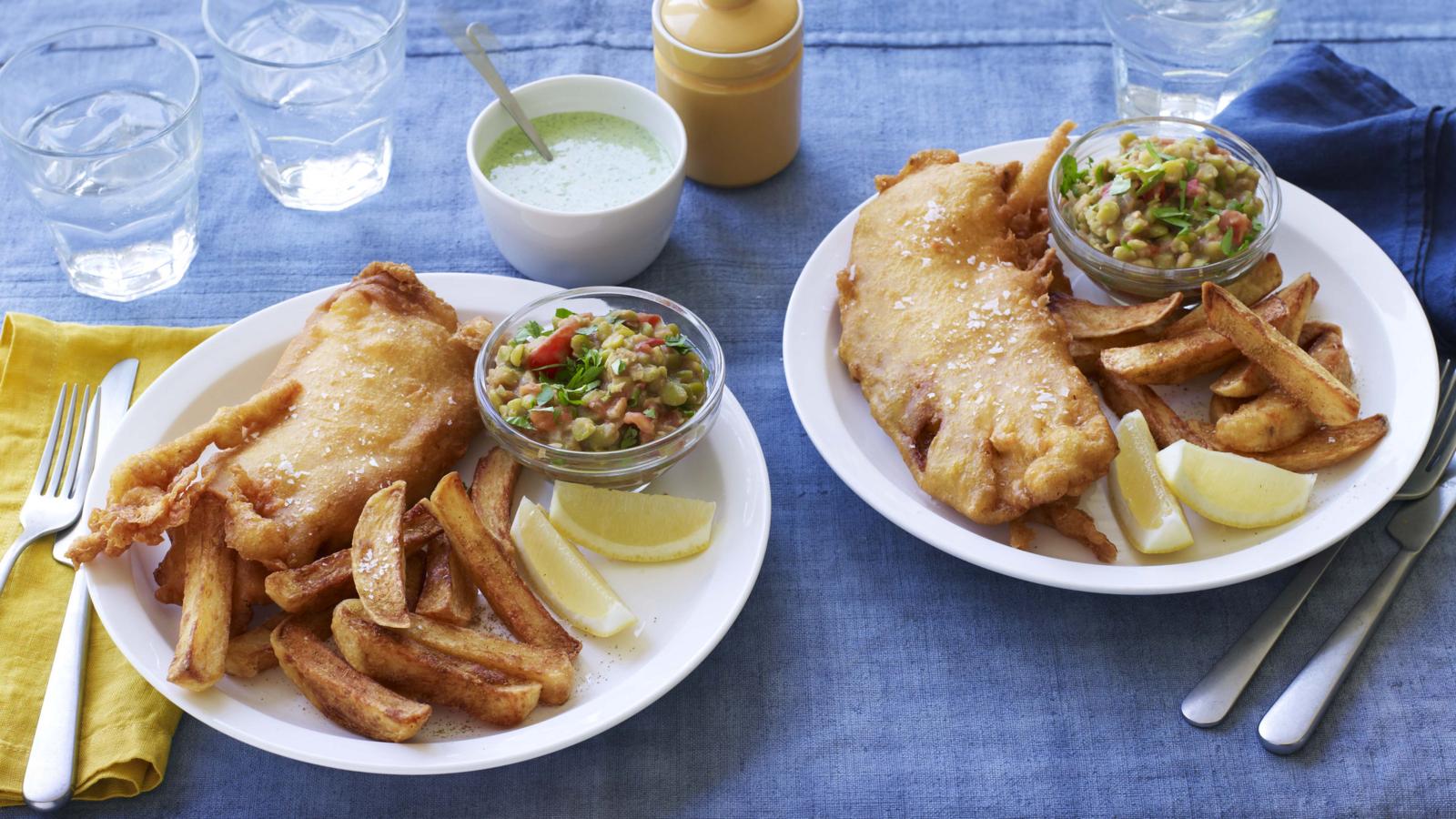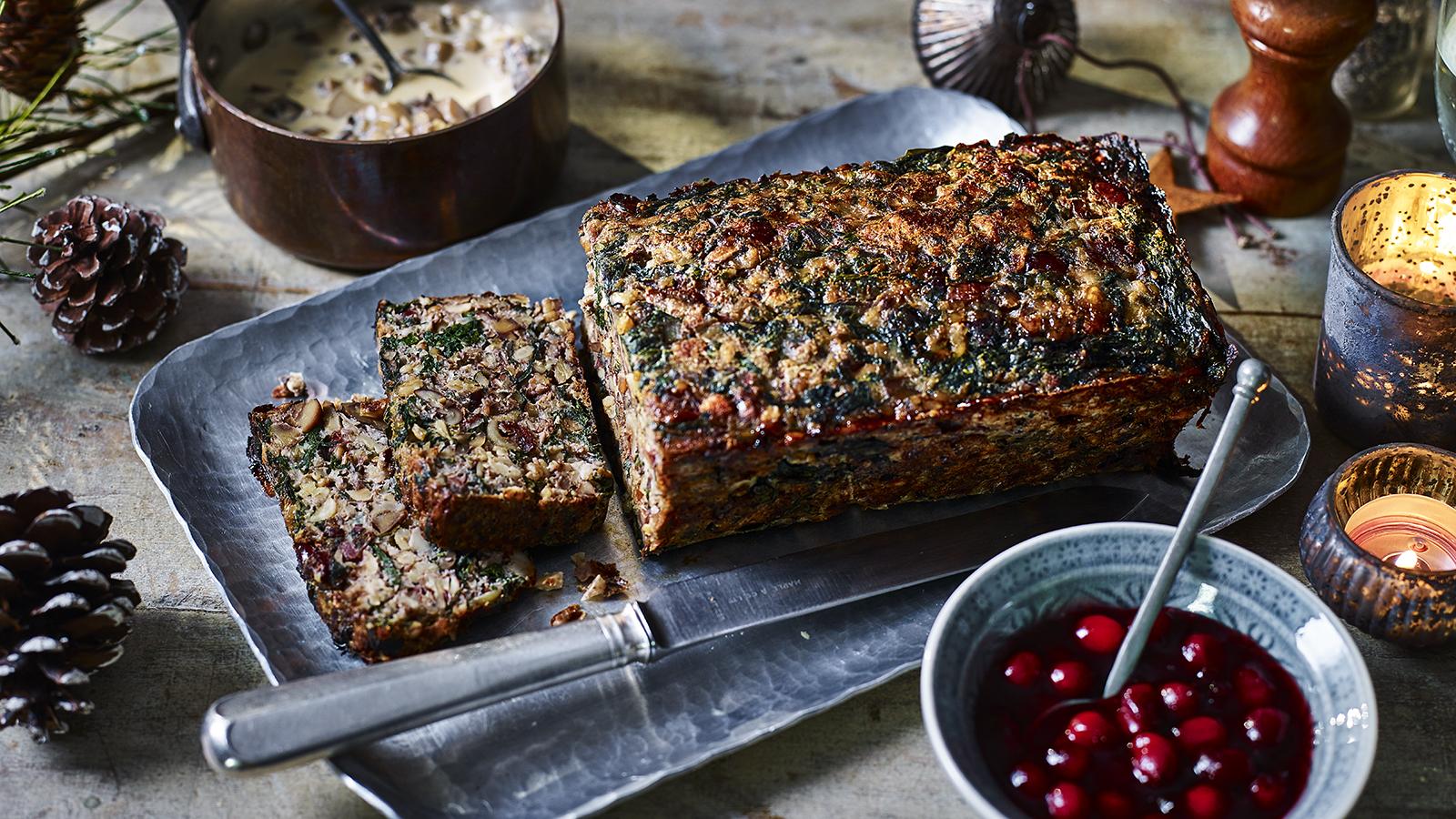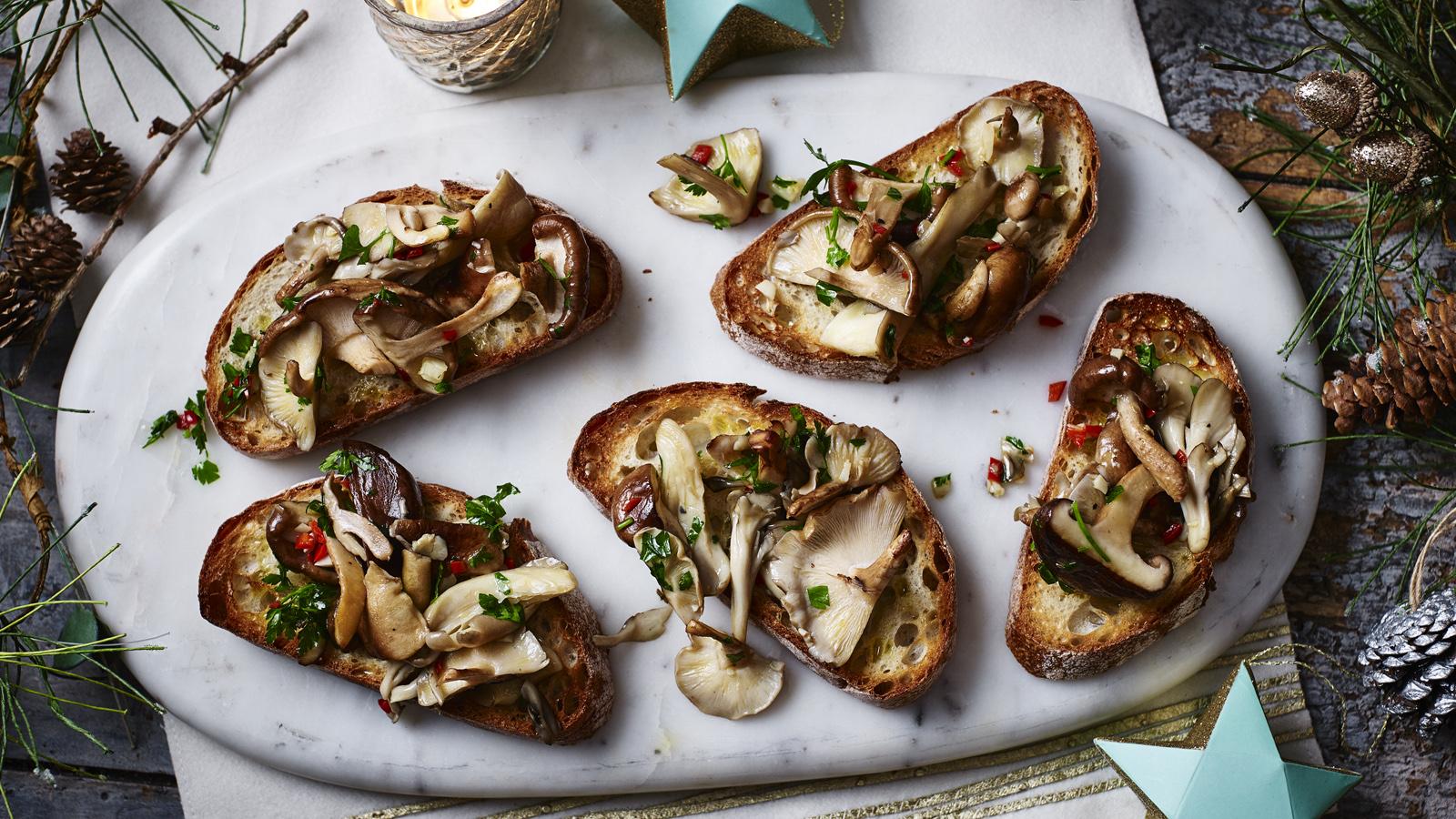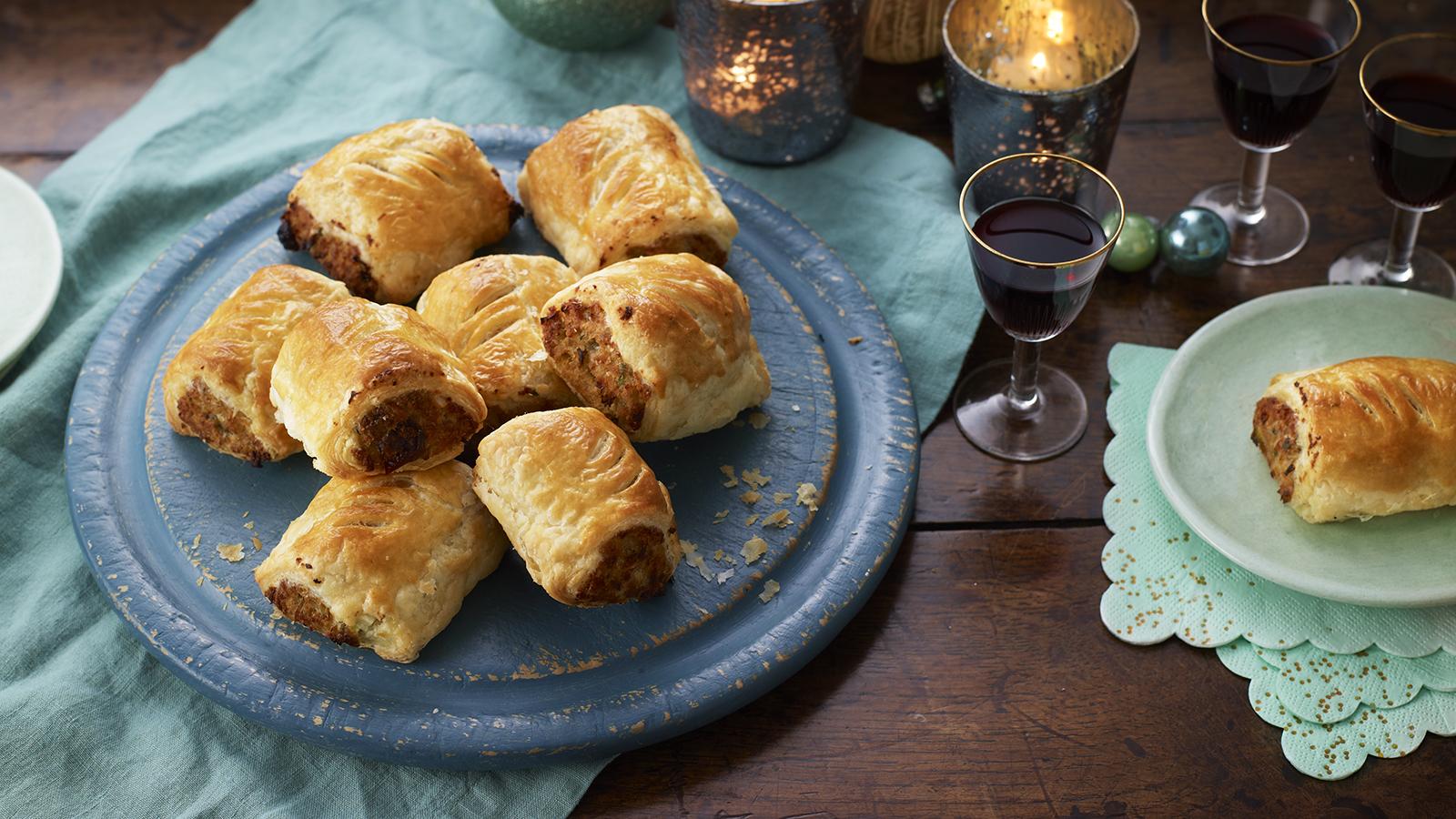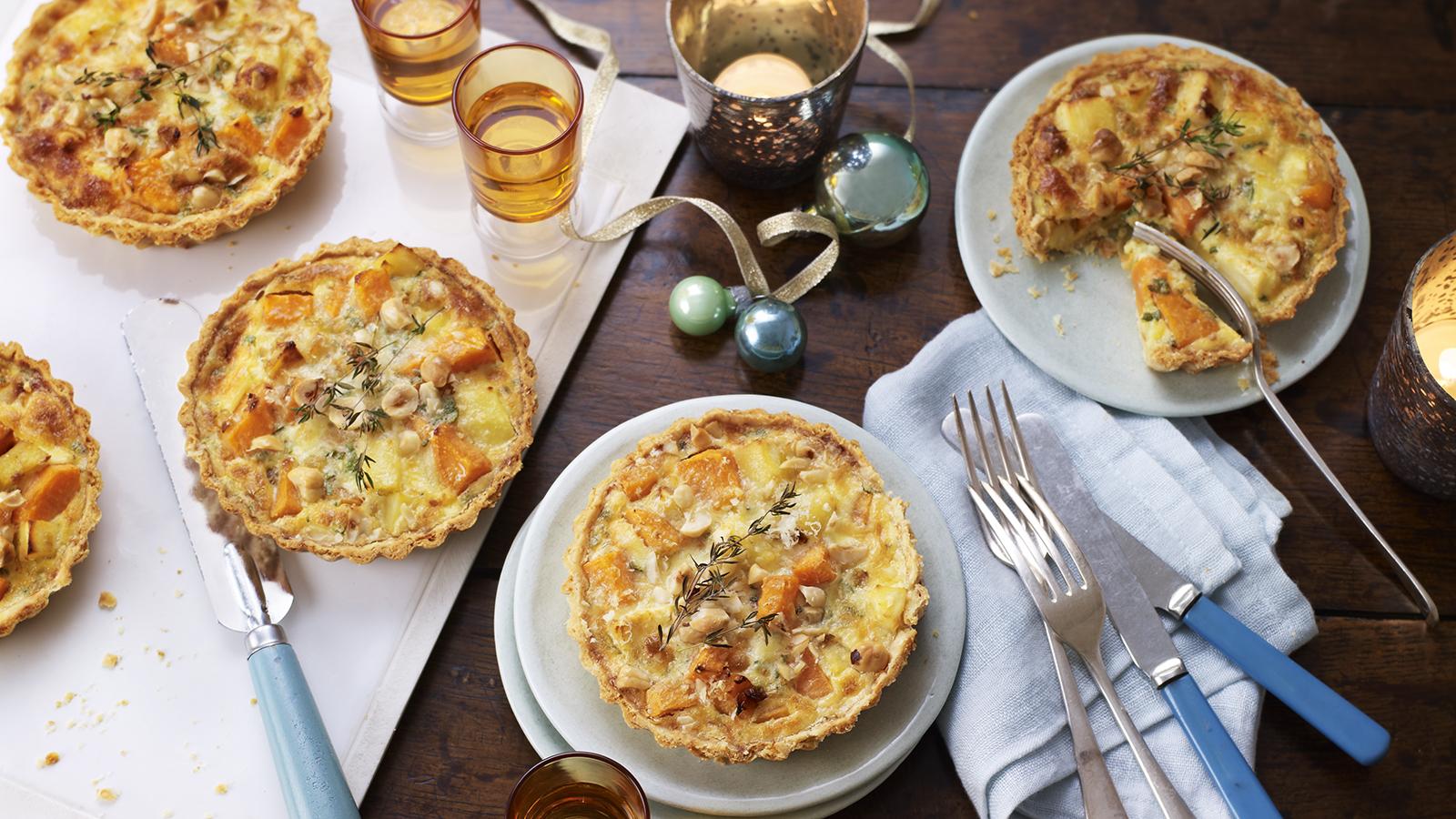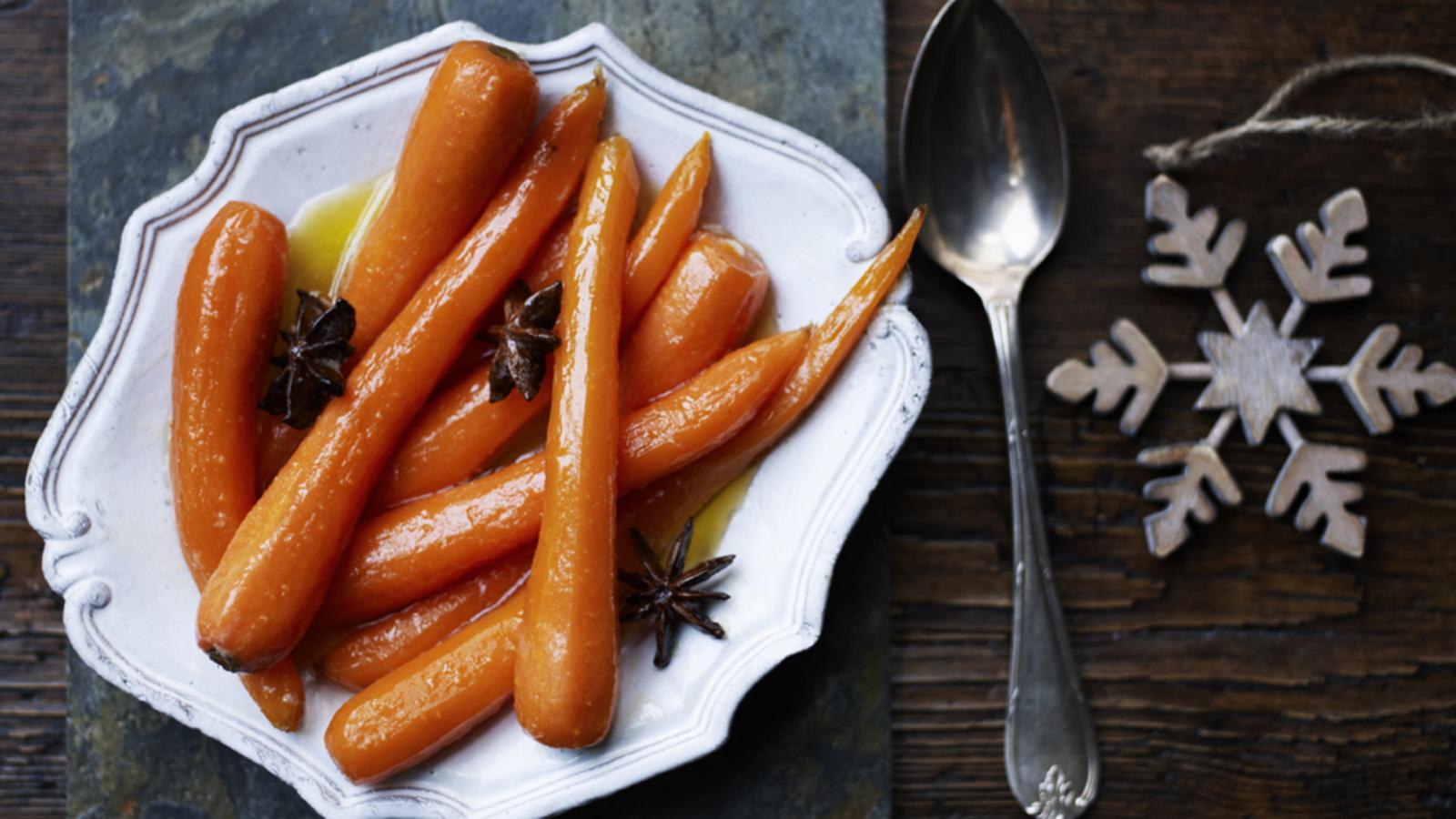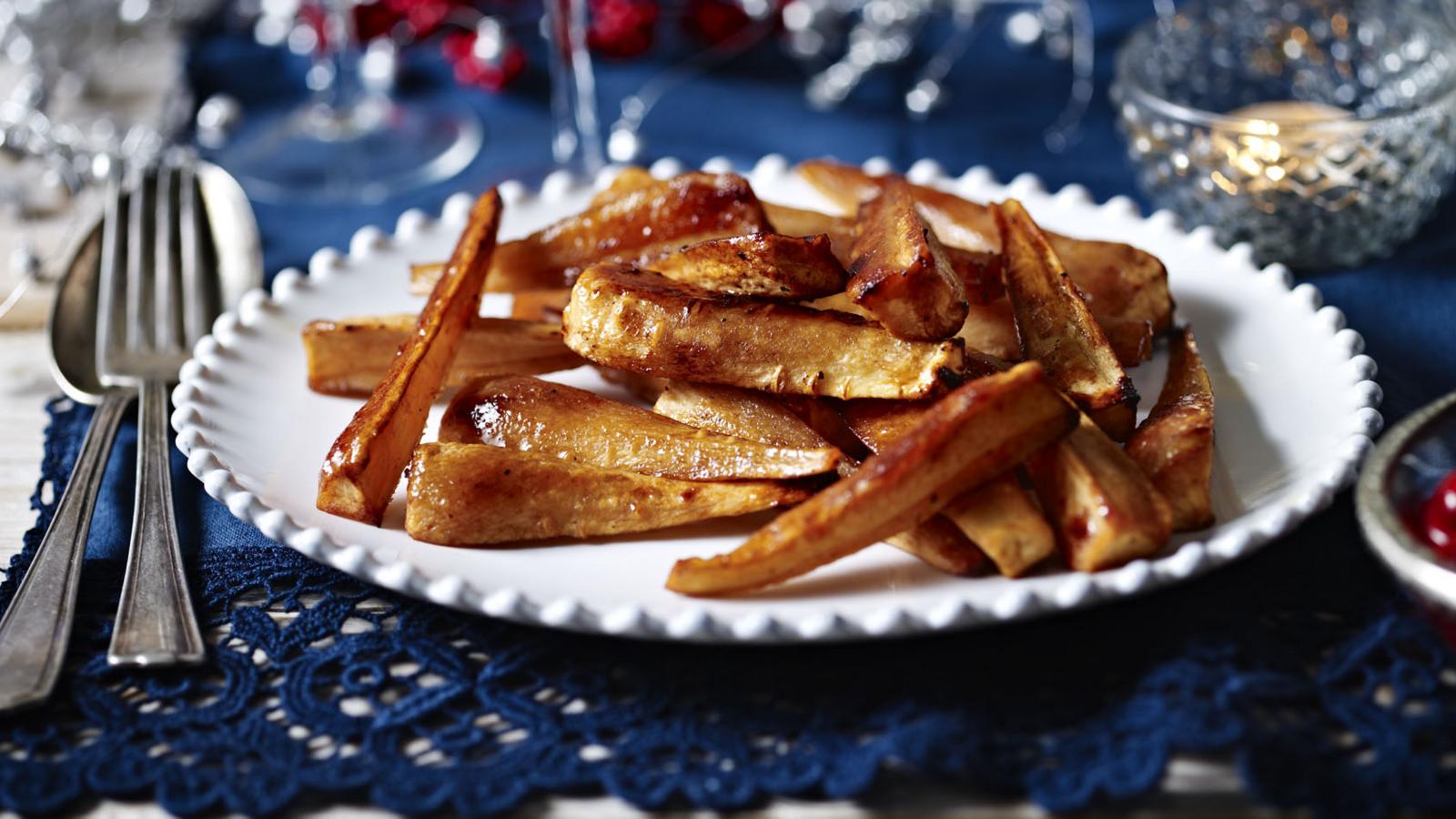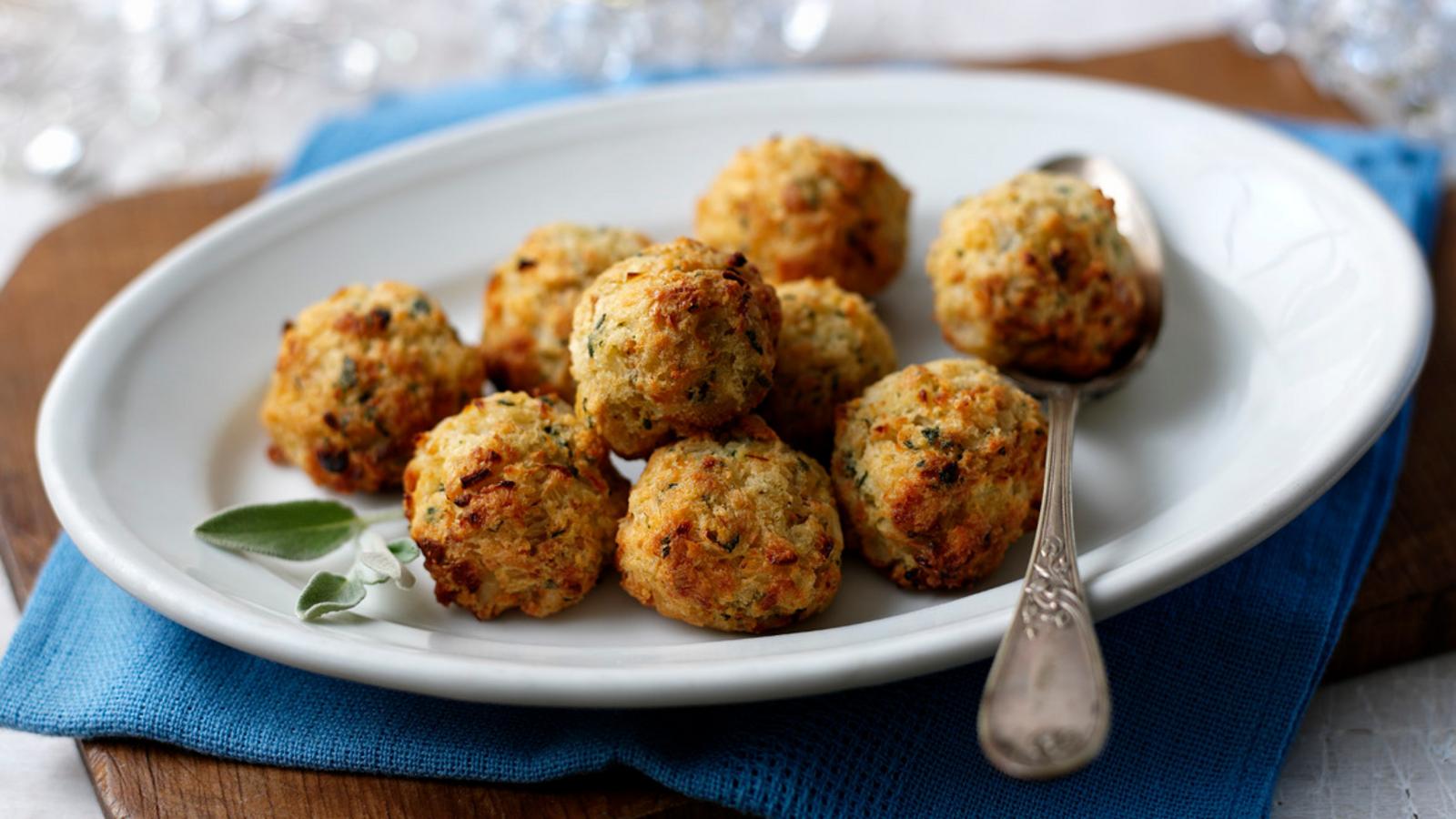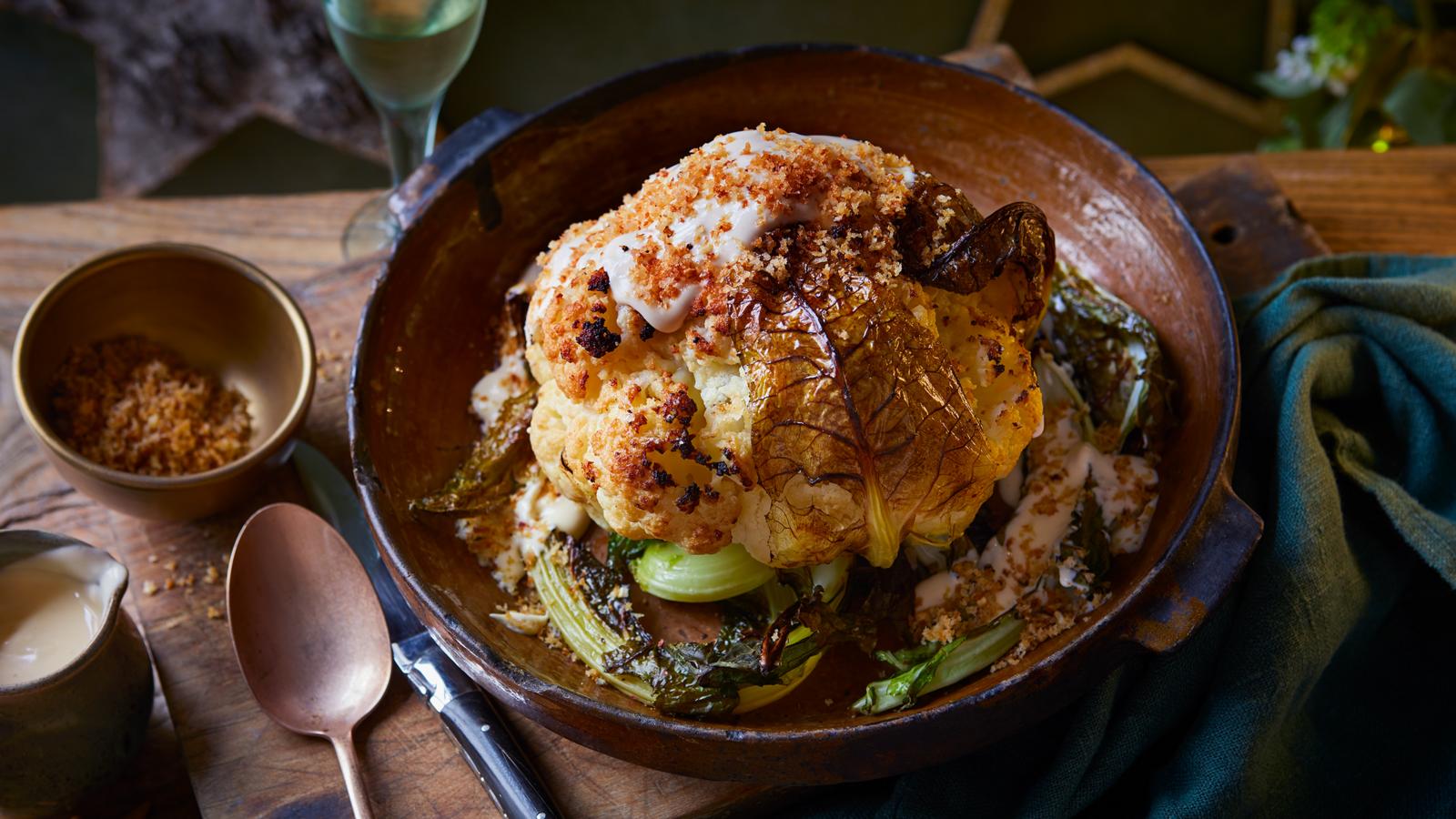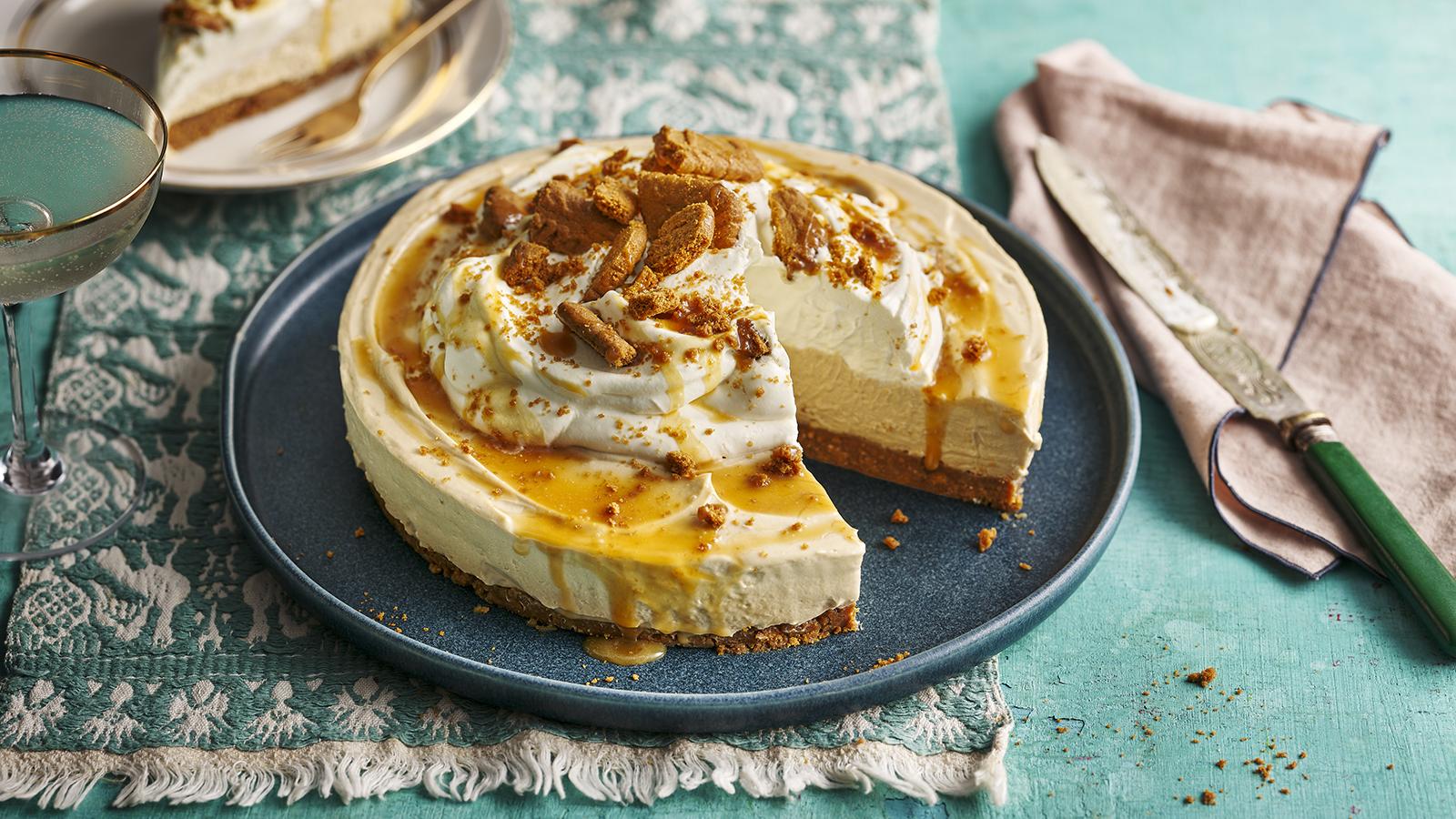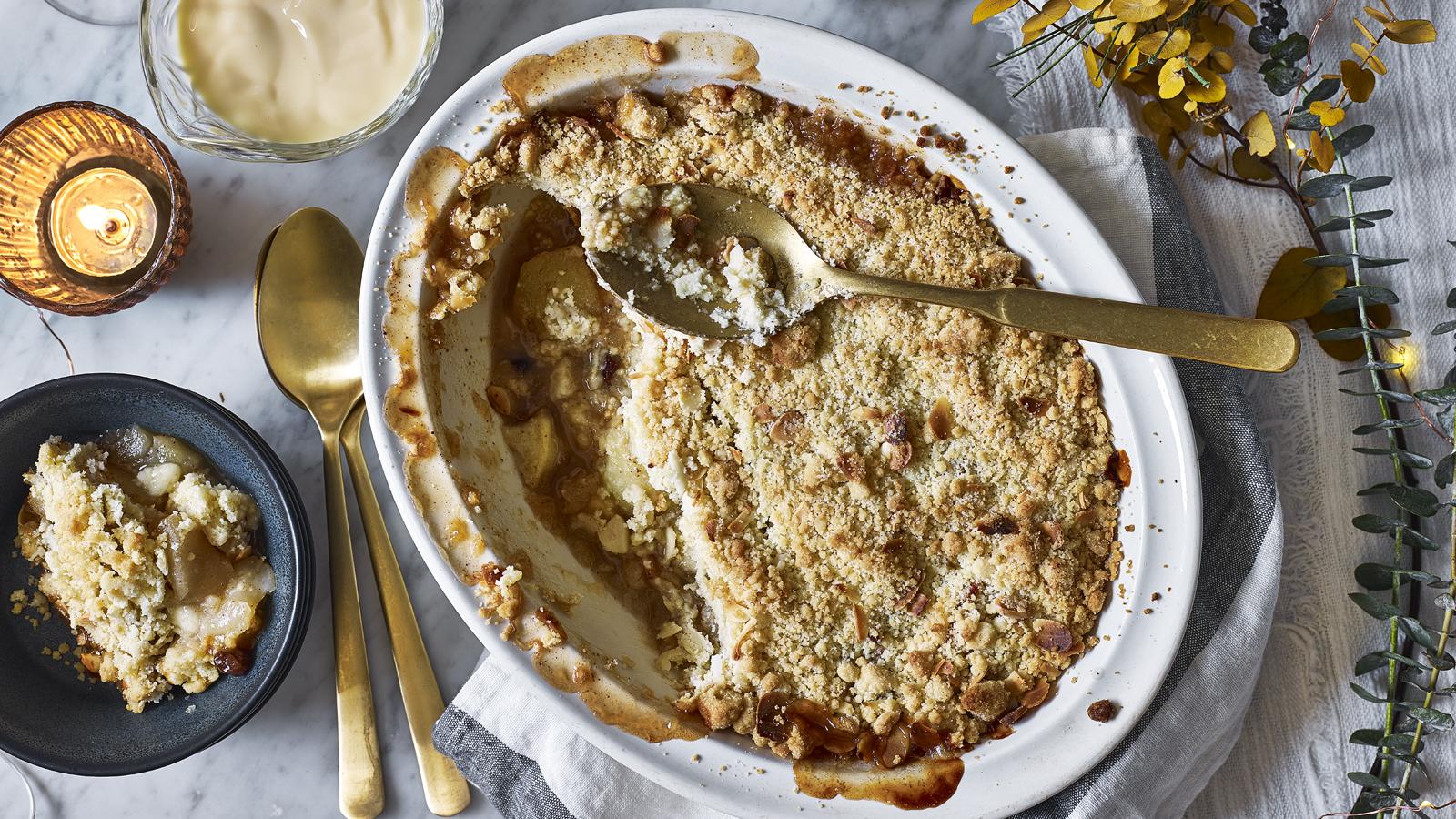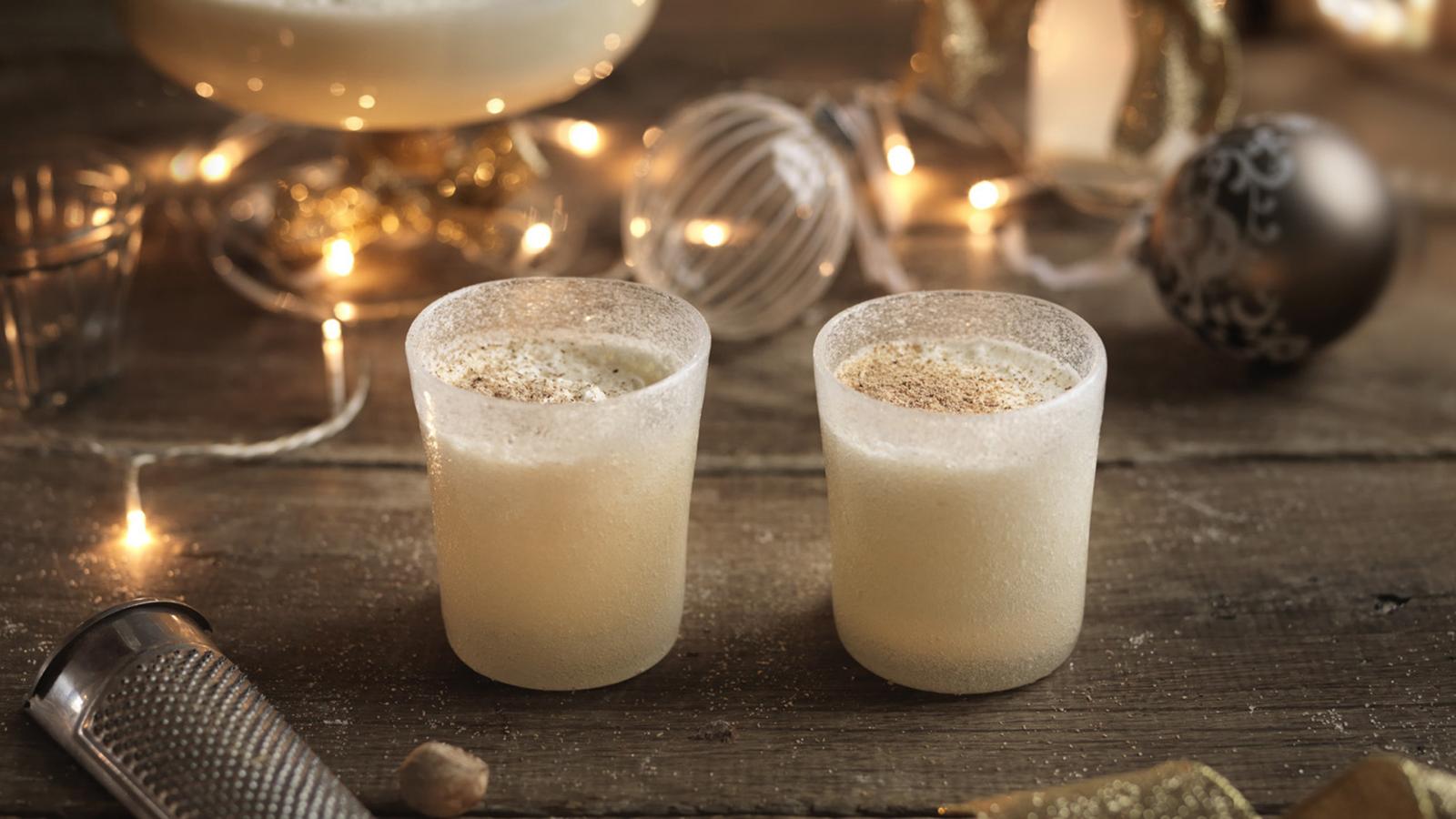Perfect roast potatoes
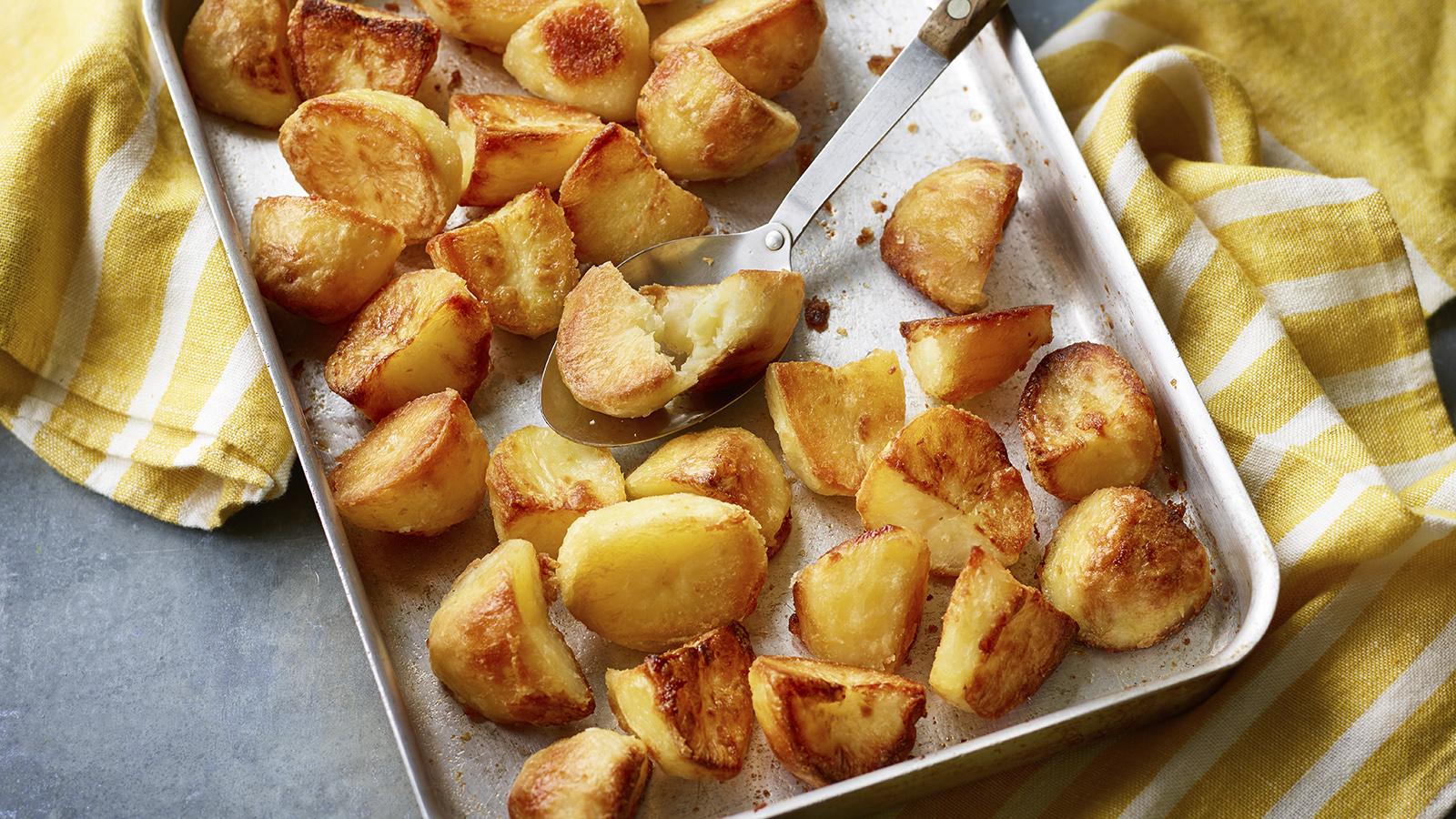
- Prepare
- less than 30 mins
- Cook
- 30 mins to 1 hour
- Serve
- Serves 8
Fluffy inside, crunchy outside, these roast potatoes are a perfect sidekick to any roast dinner. (They're even better the next day, eaten straight from the fridge!) Read our guide for more insight into how to cook the perfect roast potatoes.
Each serving provides 389 kcal, 7g protein, 65g carbohydrates (of which 3g sugars), 9.5g fat (of which 4g saturates), 7g fibre and 0.3g salt.
Method
Preheat the oven to 200C/180C Fan/Gas 6.
Put the potatoes into a pan and just cover with water. Add a tablespoon of salt, cover with a lid, and bring to the boil. Boil for 15 minutes, until cooked (they will slide off when pierced with a knife). Drain thoroughly in a colander, then set the colander on top of the cooking pan and cover the potatoes with a tea towel. Set aside for 10 minutes to steam dry.
Meanwhile, put the vegetable oil, dripping, or duck fat into a roasting tin and heat in the oven for 10 minutes.
Gently toss the potatoes around a little in the colander. Tip the potatoes into the tin of hot fat and give it a shake to spread the potatoes out in the pan, but don't worry about turning them. Put the tin into the oven and roast for 20 minutes. At this point give the potatoes a turn and then return them to the oven for a further 20-30 minutes or until golden and crunchy. Season the potatoes with salt and pepper and serve.
Recipe tips
How to make ahead
You can make roast potatoes ahead and reheat them for a stress-free roast dinner. Parboil the potatoes as above, but allow the drained, bashed potatoes to cool slightly. Toss them in the duck fat so that the potatoes are as evenly coated as possible. Then spread them out on one or two trays so the potatoes are not touching each other. When completely cold, freeze the potatoes on their trays. (After they are frozen you can transfer them to a freezer bag.) Cook the frozen potatoes at the same temperature in a dry roasting tin, adding another 15 minutes to the cooking time.
Why should you boil potatoes before roasting?
Par-boiling potatoes before roasting results in a crisper roastie. You don’t need to cook them all the way through, but around 10 minutes simmering in a pan of water will cook the outsides enough to help them absorb the fat and become crisp and golden as they roast.
Start cooking the potatoes in cold salted water over a high heat (don’t overfill the pan, the water should just cover the potatoes). Begin timing as soon as they are simmering. Depending on how many potatoes you are cooking, and what size you have cut them, 10 minutes simmering should be enough, but large chunks (as directed in this recipe) can take 15 minutes. Do check them towards the end of the cooking time as overboiled potatoes will fall apart.
After par-boiling, drain well in a colander and shake a few times to roughen up the edges. Leave the colander sitting above the pan for a few minutes to allow the steam to escape. The drier the potatoes the better, as they will absorb more fat and be crisper after roasting. If you are cooking a lot of potatoes in one go, consider placing them on a rack to dry out as a colander might be too crowded to allow the steam to escape.
Should you rough up parboiled potatoes before roasting?
To help achieve a lovely crisp and golden roast potato with a thick, crunchy crust, it’s a good idea. The roughened-up edges will increase the surface area and absorb even more fat, giving an extra crisp result. The crucial thing for crisp potatoes is to make sure you let them steam after par-boiling
What oil is best for roasting potatoes?
It’s fine to use a plain sunflower or vegetable for roasting potatoes, but for an extra special treat, use duck or goose fat, or beef dripping. Alternative fats, such as duck or goose fat often come in jars or tubs as they soften at room temperature. Melt the fat in a large baking tray, or shallow roasting tin, for a few minutes before adding the potatoes. And be generous with the fat, using around 50–75g fat for a tray of potatoes for 6–8 people. Turn the potatoes in the fat at least twice as you roast them to ensure they are nicely coated and crisping up on all sides.
Why do my roast potatoes not go crispy?
It’s best to use a floury or all-purpose potato, rather than a waxy variety. Floury potatoes, such as Maris Piper and King Edwards, produce the crispiest outsides and fluffiest insides. Waxy potatoes won’t crisp up in the same way, so they are better saved for boiling.
Potatoes need to be well spread out on a roasting tray to allow the heat to circulate around them. If your oven or roasting tray is overcrowded, especially with other vegetables, lots of steam can be created which will reduce the crispiness of your spuds.
Make sure your oven is hot enough to roast the potatoes, ideally 200C/180C Fan/Gas 6. If you have meat cooking at a slightly lower temperature in the same oven, start your potatoes off at the reduced temperature, then turn it up to 220C/200C Fan/Gas 7 for a good blast while the meat is resting.
How to add extra flavour to your roast potatoes
If you wish to add extra flavour to your roast potatoes, such as garlic, chilli and herbs, it’s best to add them towards the end of the roasting time, as they can easily burn. With around 10 minutes cooking time left, take the potatoes out of the oven and sprinkle with dried flaked chilli, roughly crushed garlic or freshly chopped woody herbs, turn in the hot fat and return to the oven.
Alternatively, make a flavoured oil. Pour a few tablespoons of vegetable or sunflower oil into a small saucepan and add sliced garlic, chilli and robust fresh herbs, such as rosemary, thyme and bay. Heat very gently for a few minutes, then stand for an hour before straining. Use this to roast the potatoes instead of a plain oil to add extra flavour.
